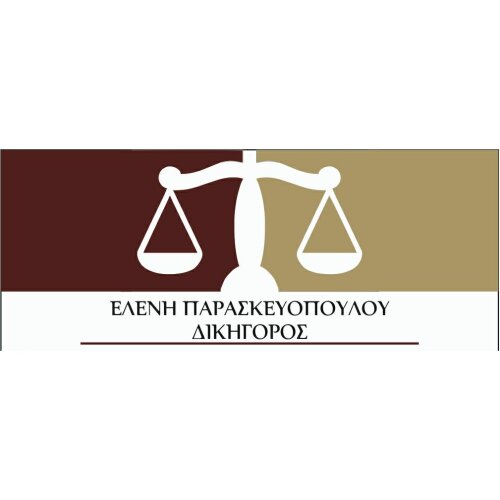Best Employment Rights Lawyers in Pátrai
Share your needs with us, get contacted by law firms.
Free. Takes 2 min.
List of the best lawyers in Pátrai, Greece
About Employment Rights Law in Pátrai, Greece:
Employment Rights in Pátrai, located in the Achaia region of Greece, are primarily governed by national and European laws. Generally, these laws cover a wide range of topics such as fair wages, safe working conditions, and discrimination and harassment. Employee rights protection is also provided by collective bargaining agreements. The Greek Labor Law embodies the principle of social justice to protect workers' rights, including general labor standards, collective labor rights, and individual labor rights.
Why You May Need a Lawyer:
Legal assistance may be necessary in various situations related to employment law. These can include instances of wrongful termination, discrimination at the workplace, wage and overtime disputes, or issues related to the compliance with state regulations. A lawyer can help ensure that your rights under Greek and EU law are fully upheld.
Local Laws Overview:
In Pátrai, the same national and European laws apply. So, Greek Labor Law, complemented by EU directives, governs employment contracts, minimum wage, working hours, vacation and sick leave, and matters related to employee dismissal. It is important to note that Greece also imposes sector-specific collective labor agreements, which should also be acknowledged when understanding employment rights.
Frequently Asked Questions:
1. What is the minimum wage in Pátrai?
As of 2021, for full-time employees over 25 years old, the minimum monthly wage in Greece is approximately €758.33 before tax.
2. What are the main anti-discrimination laws?
The Greek Labor Code, in compliance with EU directives, contains provisions against discrimination based on sex, religion, national origin, age, disability, or sexual orientation.
3. How many paid vacation days am I entitled to?
Workers employed full-time for at least a year are entitled to a minimum of 20 paid vacation days per year in Greece. However, collective agreements may provide for a higher number of vacation days.
4. What should I do if I am wrongfully terminated?
If you believe you have been wrongfully dismissed, you should seek immediate legal assistance. A lawyer can help you evaluate your situation, explain your rights, and guide you through the legal process.
5. Can I work more than 8 hours a day?
The maximum working hours per day in Greek law is typically 8 hours. However, this can extend to 10 hours under an agreement. But it should be noted that the total working week should not exceed 40 hours on a regular basis.
Additional Resources:
The Ministry of Labor and Social Affairs, the Greek Ombudsman, and the European Institute for Gender Equality are useful resources for further information on employment rights in Pátrai, Greece. Additionally, the General Confederation of Greek Workers provides extensive information and assistance on employment rights.
Next Steps:
If you need legal assistance related to employment rights in Pátrai, you should contact a local attorney or legal aid service experienced in employment law. They'll help you understand your situation properly, protect your rights and represent you if necessary. Also, remember to document all relevant information about your employment situation.
Lawzana helps you find the best lawyers and law firms in Pátrai through a curated and pre-screened list of qualified legal professionals. Our platform offers rankings and detailed profiles of attorneys and law firms, allowing you to compare based on practice areas, including Employment Rights, experience, and client feedback.
Each profile includes a description of the firm's areas of practice, client reviews, team members and partners, year of establishment, spoken languages, office locations, contact information, social media presence, and any published articles or resources. Most firms on our platform speak English and are experienced in both local and international legal matters.
Get a quote from top-rated law firms in Pátrai, Greece — quickly, securely, and without unnecessary hassle.
Disclaimer:
The information provided on this page is for general informational purposes only and does not constitute legal advice. While we strive to ensure the accuracy and relevance of the content, legal information may change over time, and interpretations of the law can vary. You should always consult with a qualified legal professional for advice specific to your situation.
We disclaim all liability for actions taken or not taken based on the content of this page. If you believe any information is incorrect or outdated, please contact us, and we will review and update it where appropriate.









